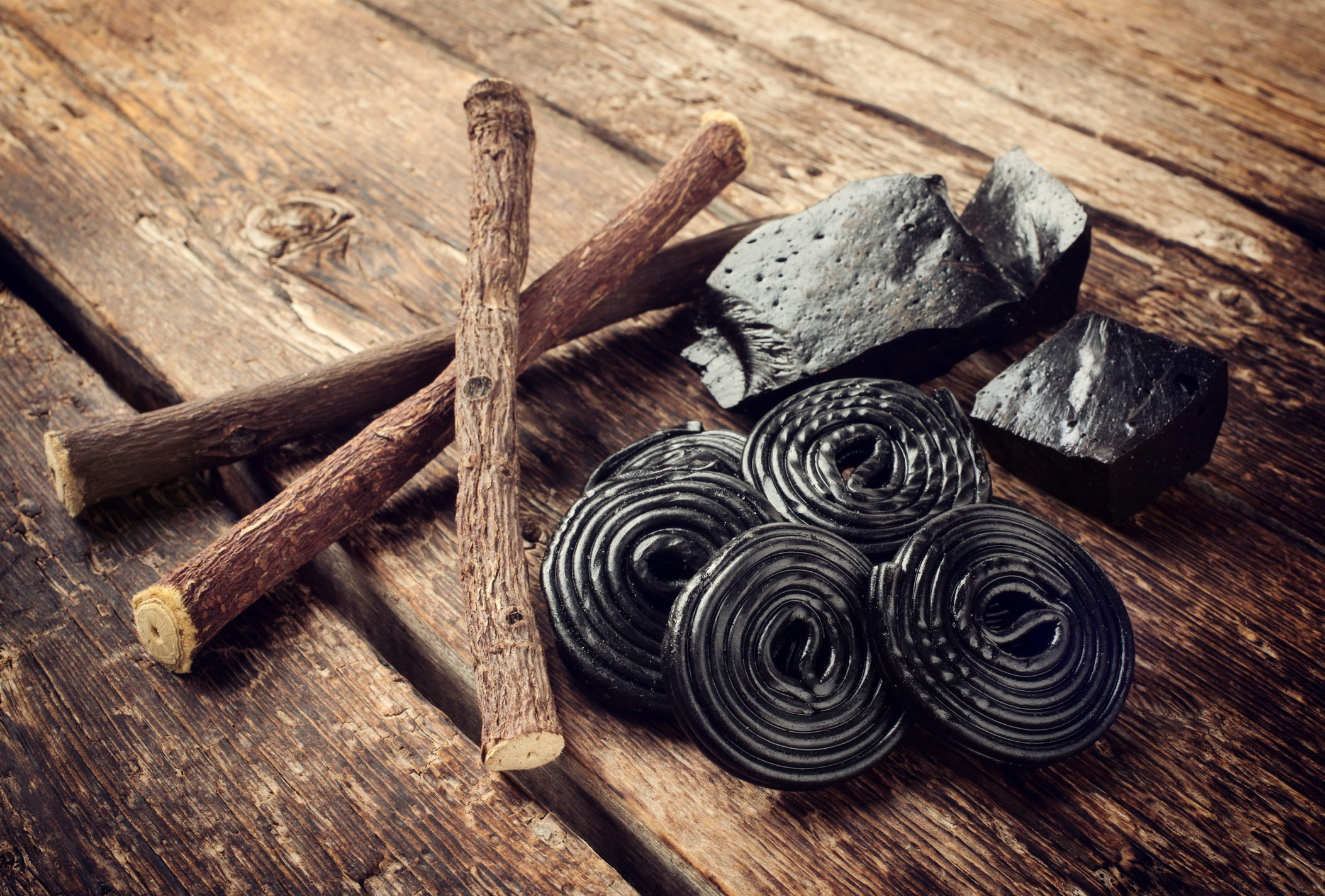

There’s no accounting for tastes in food. But candy? We all like candy, right?
Except for one: licorice. The black, chewy stuff seems to be a love-it-or-hate-it proposition. Me, I love it!
The candy comes from the root of the licorice plant, which is one of the world’s oldest herbal remedies.
It’s been found to contain a compound that fights diabetes. Taking licorice root extract can fight adrenal fatigue. When applied topically, it has been shown to counteract the growth of the herpes simplex virus that causes cold sores.
And there’s nothing like a cup of licorice tea to soothe an upset stomach.
But now, research is pointing us toward the possibility of using the natural chemicals in licorice as a cure for a common type of cancer.
Licorice cells attack prostate cancer in two ways
Gnanasekar Munirathinam and his colleagues from the Department of Biomedical Sciences at the University of Chicago’s College of Medicine are studying substances derived from the licorice plant to determine if they could be used to prevent or stop the growth of prostate cancer.
Prostate cancer is the second most common form of cancer in American men. Out of every 100 men, about 13 will get prostate cancer during their lifetime, and about 2 to 3 men will die from prostate cancer.
On the other hand, prostate cancer is one of the most treatable forms of cancer.
In their recent review, Professor Gnanasekar and colleagues looked at the available literature on glycyrrhizin and glycyrrhetinic acid, the two major active components of licorice root, and their effect on various types of cancer cells.
When it came to prostate cancer cells, the results were especially encouraging. Not only did the licorice compounds induce apoptosis (cell death) in cancer cells, they inhibited the process by which normal cells become cancer cells and start to migrate within the body.
In other words, these compounds not only killed existing prostate cancer cells, but they also stopped normal cells from becoming cancerous in the first place.
Professor Gnanasekar says, “More research is needed into exactly how these (compounds) could best be used to develop therapies, but this appears to be a promising area of cancer research.”
Diet can help reduce prostate cancer risk
So, if you’re a licorice lover like me, does this mean you should run out and start eating licorice by the pound?
Absolutely not.
In fact, if you have high blood pressure, heart or kidney disease, you’re probably best off avoiding it altogether or at least checking with your doctor before eating it.
That’s because elevated levels of glycyrrhizin have been shown to cause an abnormal increase in the stress hormone cortisol which may cause imbalances in your fluid and electrolyte levels.
As a result, chronic and large doses of licorice root products may trigger several dangerous symptoms, including:
- low potassium levels
- high blood pressure
- muscle weakness
- abnormal heart rhythms
And though it’s rare, there is such a thing as licorice poisoning. It may result in kidney failure, congestive heart failure, or excess fluid accumulation in the lungs (pulmonary edema). In extreme cases, it can even be fatal.
Another natural way to use dietary means to decrease your prostate cancer risk — that won’t make you sick — is a compound called di-indole-methane (DIM). DIM is found in cruciferous vegetables, especially broccoli.
In studies, DIM has increased estrogen metabolism (lessens estrogen dominance), decreased androgen-specific antigen, up-regulated BRCA1 expression, and increased androgen hormone-binding globulin. This suggests that DIM may have a promising, beneficial chemopreventive role for not only prostate cancers but breast cancers as well.
The Mediterranean diet is a good diet to follow if you want to make real diet changes that can cut your risk further. It is lower in fat. That matters because recent research has found that prostate cancers may be on the rise because of a scary synergy between forever chemicals and dietary fat.
Sources:
Researchers look to licorice for promising cancer treatments — Science Daily
Anti-Cancer and Other Biological Effects of a Dietary Compound 3,3ʹ-Diindolylmethane Supplementation: A Systematic Review of Human Clinical Trials — dovepress.com
Oncopreventive and oncotherapeutic potential of licorice triterpenoid compound glycyrrhizin and its derivatives: Molecular insights — Pharmacological Research
What Are Licorice Root’s Benefits and Downsides? — Healthline
Anti-Cancer and Other Biological Effects of a Dietary Compound 3,3ʹ-Diindolylmethane Supplementation: A Systematic Review of Human Clinical Trials — dovepress.com